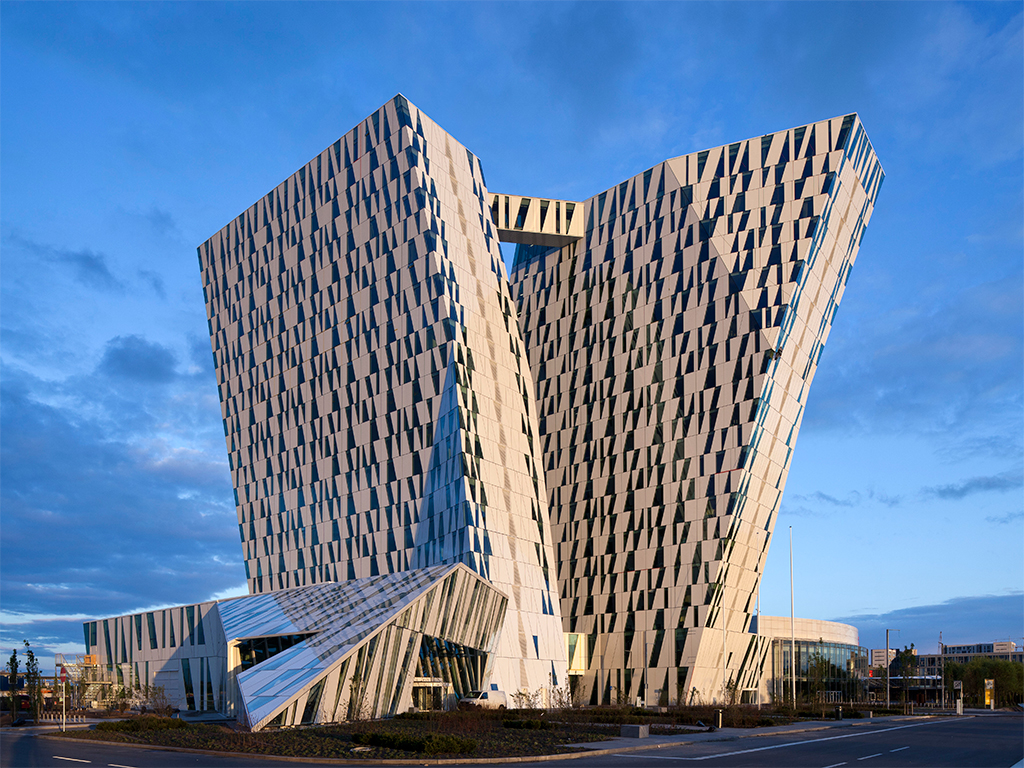Having built up a significant hotel and conference sector, Copenhagen is a centre for corporate travel, but also attracts mounds of leisure visitors. Innovative architecture and unique interior design have helped the Danish capital stand out from the crowd in the global hotel sector. Having hosted Eurovision twice and the COP15 climate change conference in recent years, the demand for hotel capacity has increased, but hasn’t meant a compromise on design.
Known for their Scandinavian style, several of Copenhagen’s hotels have won awards and public attention for introducing concepts such as a floor entirely for women and complete hotel sustainability. Functionality has been key for Copenhagen over the last few years as it built to facilitate a larger visitor capacity, but design and originality were never left on the backseat.
Innovative architecture and unique interior design has helped the Danish capital stand out from the crowd in the global hotel sector
“Copenhagen’s hotels stand out because a great number of the hotels are either family or individually owned, making the personal touch more present. I also think, that the use of Scandinavian design makes them stand out,” explains Ulrika Mårtensson, Head of Communications, Meetings and Incentives at the tourism organisation Wonderful Copenhagen.
In her opinion, the city boasts a slew of hotels and conference centres with unique design and architecture. The Bella Sky Comwell by Danish architects 3xn, stands out with its daring and award-winning architecture, while the Tivoli Congress Centre, designed by Danish architect Kim Utzon and the Radisson Blu Royal, is known as the world’s first design hotel, with all furnishings and interiors created by Danish cult architect and designer Arne Jacobsen.
Beyond functionality
The Bella Sky Comwell has become a landmark for Copenhagen’s skyline with two skewed towers inclined at 15 degrees and reaching 76.5m each. In comparison, the Tower of Pisa only inclines 3.99 degrees. The hotel is well known for its stand-out design and draws in thousands of visitors each year.
The choice of the unique architecture isn’t just random either, says General Manager Anders Duelund.
“We wanted the hotel to have a new Nordic cool expression, and we wanted to deliver precision and through this, impress our guests with high service levels and unique design. This is why we incorporated ‘hygge’ into the hotel – so even with its 812 rooms, this big hotel is still cosy,” explains Duelund.
Hygge is an impossible-to-translate, yet inherently Danish word, which means cosiness, good times, a friendly atmosphere and homey design. Hygge is at the core of all social interactions in Denmark and, maybe, the basis for the Danish hotels’ success. Nordic exactitude is another one.
“Copenhagen has been good at handling major events primarily because it offers a good combination of hardware such as accessibility, infrastructure, hotels and meetings facilities and because we are good at working together as an industry, across official and private sectors. On top of that we offer a lot of creativity and innovation. Being such a small destination you have to stand out in terms of performance, and that’s what we do,” explains Mårtensson.
Meeting business needs
Standing out is key in a competitive industry such as the hotel business, and with a women’s only floor and a two-storey green wall of live plants, Bella Sky Comwell is hard to miss.

Nearby, Crowne Plaza Copenhagen Towers is one of the leading sustainable hotels in the world, offering rooms with electric car and cycle hire, and bathroom products in biodegradable materials. The hotel is also equipped with solar panels, meaning it uses 65 percent less energy than other comparable hotels. Similarly, the Tivoli Congress Centre has a “fearless design and signature play with light of it’s architect, Kim Utzon,” according to Claus Isling, Head of Marketing at the Arp-Hansen Hotel Group, referring to the multi-coloured spotlights radiating from its skewed facade.
The hotel is a popular choice among corporate travellers, having made several improvements in order to facilitate this growing group of visitors, which currently accounts for half of the total amount of tourists visiting Copenhagen on a yearly basis. The improvements include three executive floors with amenities specially designed for business travellers, as well as a state-of-the art conference hall with a movable stage and an in-house AV technician, Isling explains. The combination of hotels offering large-scale meeting facilities along with rooms has helped attract corporate travellers, as it cuts down transport time and creates ease for the firm.
“Copenhagen is a very good destination for business travellers – it’s easy to get here, easy to get around thanks to our efficient infrastructure and very short distances. It’s also a safe, clean and professional city with highly educated people where the vast majority speaks English. More importantly, the selection of hotels and convention centres is an important factor, as many visitors take this into account when choosing a destination for a meeting or event,” says Mårtensson.
Looking for competition
Yet, with more visitors every year, Copenhagen’s hotels are reaching capacity more and more often. To this end, Duelund would like to see increased international competition in the local hotel industry.
“If we could get more international corporate hotel brands to Copenhagen, we could attract more corporate clients. I’m not scared of competition – this would help us bring in even larger conferences and that would benefit all of us.”
Duelund’s wish could be about to come true – several of the large-scale Danish hotel groups are actively looking to establish partnerships with chains such as Intercontinental, the Four Seasons and Marriott Hotels in the hopes that this can push more of the Danish hotels with a local brand into the international sphere.





